Set Screws
YH FASTENER offers set screws used to secure components without nuts, commonly for shafts, pulleys, and gears. Our precise threads ensure firm locking and long-term stability.

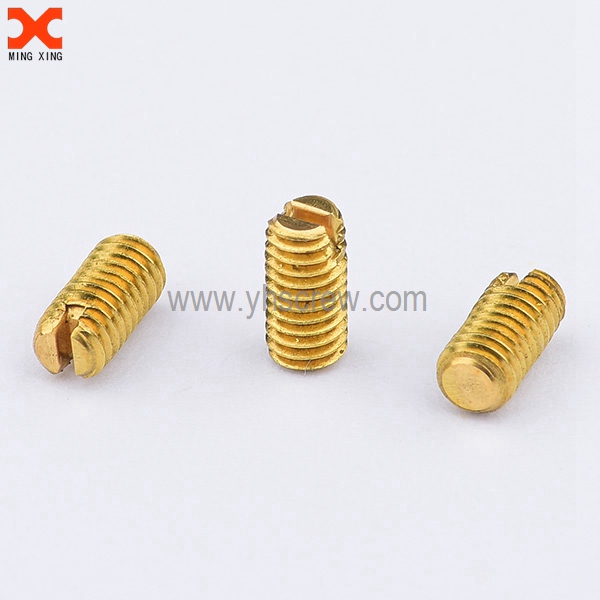
Category: Set screwTags: brass set screws, flat point set screw, set screw manufacturers, set screw wholesale, slotted drive screw
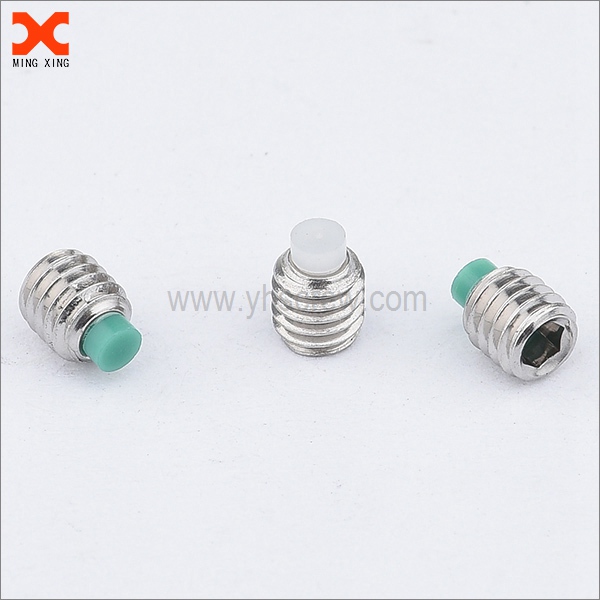
Category: Set screwTags: 18-8 stainless steel screws, dog point set screw, hexagon socket set screw, set screw manufacturers, stainless steel set screws
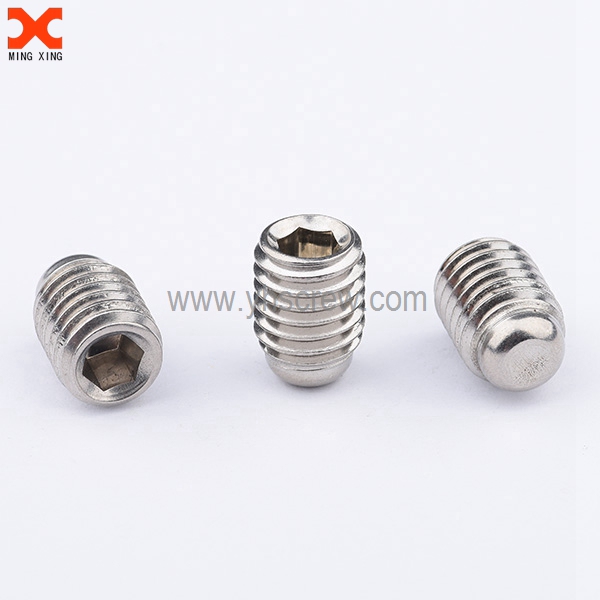
Category: Set screwTags: oval point set screw, set screw manufacturers, set screw wholesale, socket set screw, socket set screws, stainless steel set screws
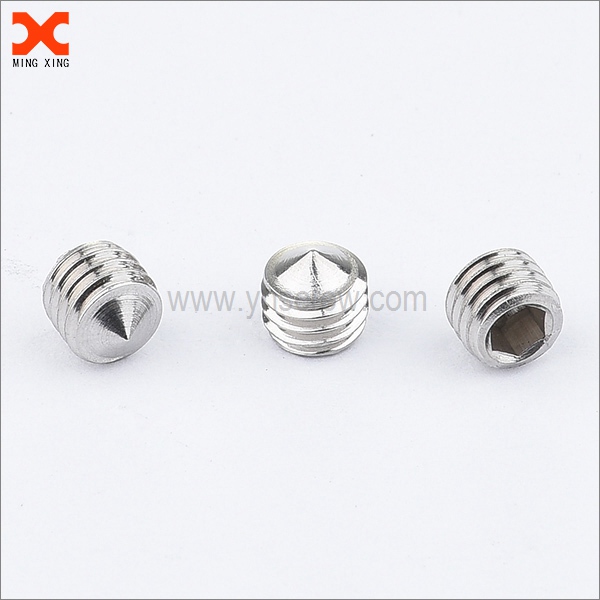
Category: Set screwTags: allen grub screw, cone point grub screw, grub screw manufacturers, socket head grub screw
A set screw is a specific type of screw without a head, primarily utilized in precise mechanical applications where a subtle and effective fastening solution is needed. These screws feature a machine thread that allows them to be used with a tapped hole for secure positioning.
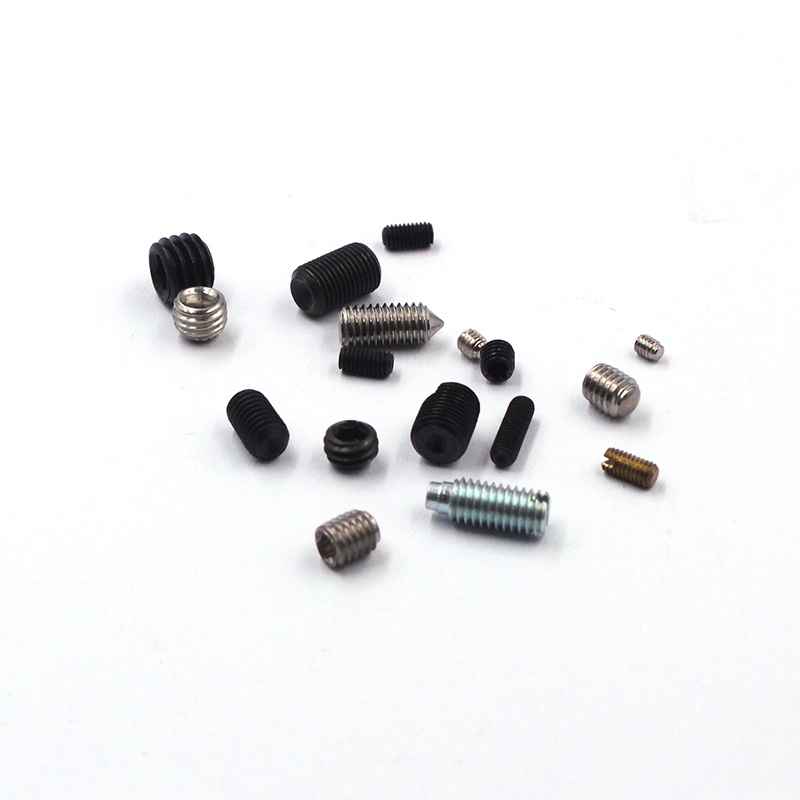
Set screws come in different variants, with the five most popular styles being:
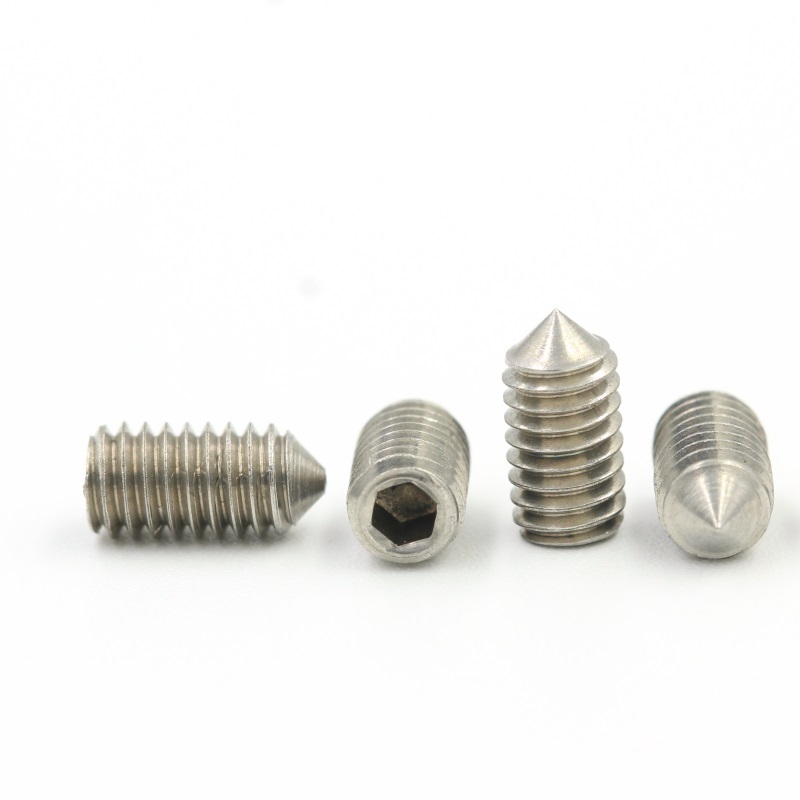
Cone point set screw
• Cone set screws exhibit superior torsional resistance due to concentrated axial loading.
• The conical tip induces localized deformation on planar substrates, enhancing mechanical interlock.
• Serves as a kinematic fulcrum for precision angular adjustments prior to final fixation.
• Optimized for stress concentration applications in low-yield-strength material assemblies.
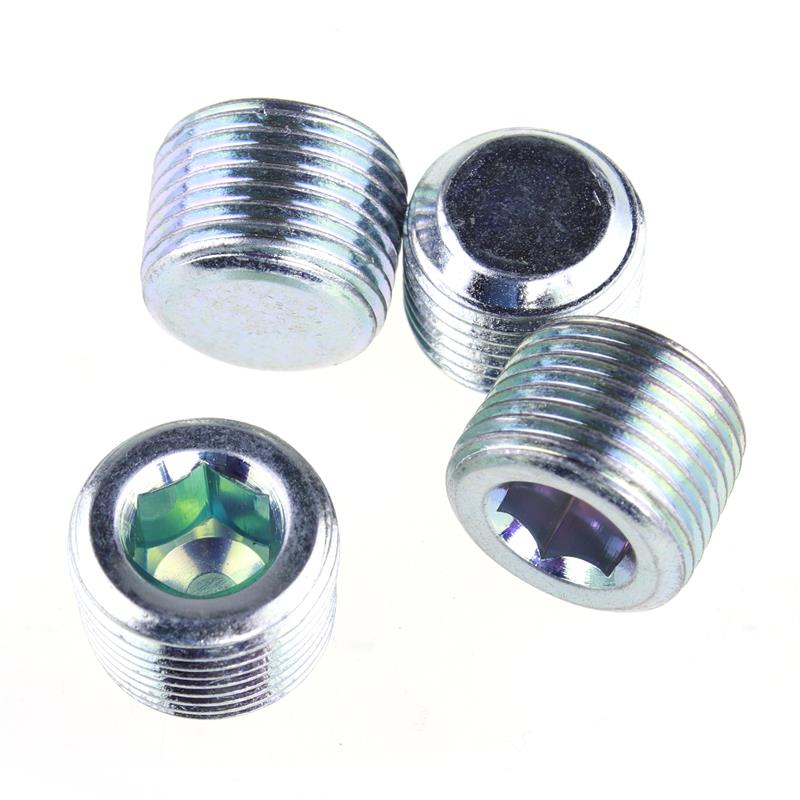
flat point set screw
• Flat set screws apply uniform compressive stress distribution at the interface, minimizing surface penetration while offering reduced rotational resistance compared to profiled tips.
• Recommended for applications involving low-stiffness substrates or thin-walled assemblies where penetration must be controlled.
• Preferred for dynamically adjusted interfaces requiring repeated positional recalibration without surface degradation.
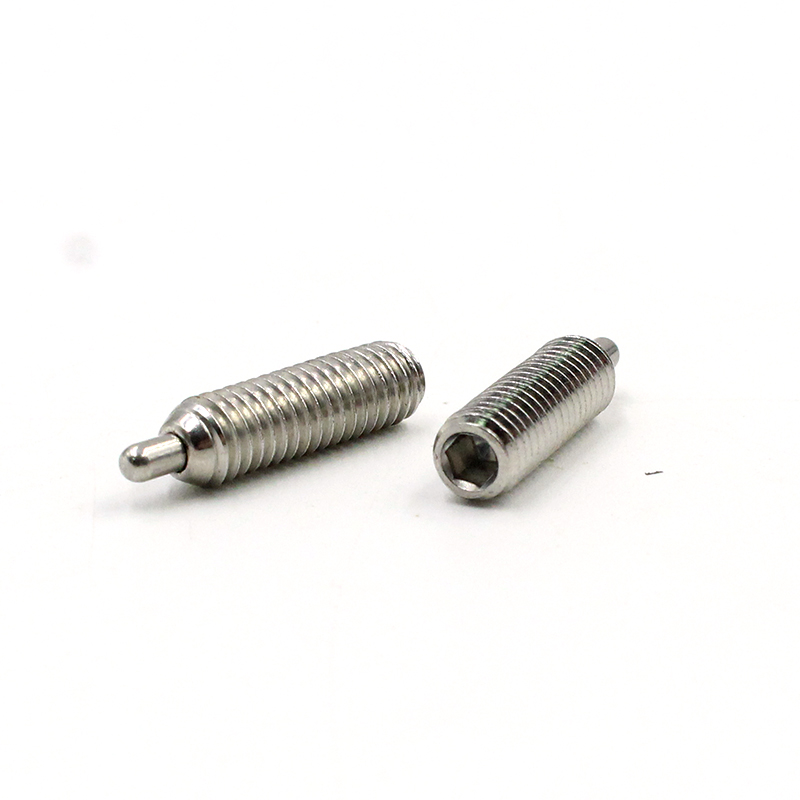
dog point set screw
• Flat-tip set screws engage pre-drilled holes, allowing shaft rotation while preventing axial displacement.
• Extended tips locate into machined shaft grooves for radial positioning.
• Functionally interchangeable with dowel pins in alignment applications.
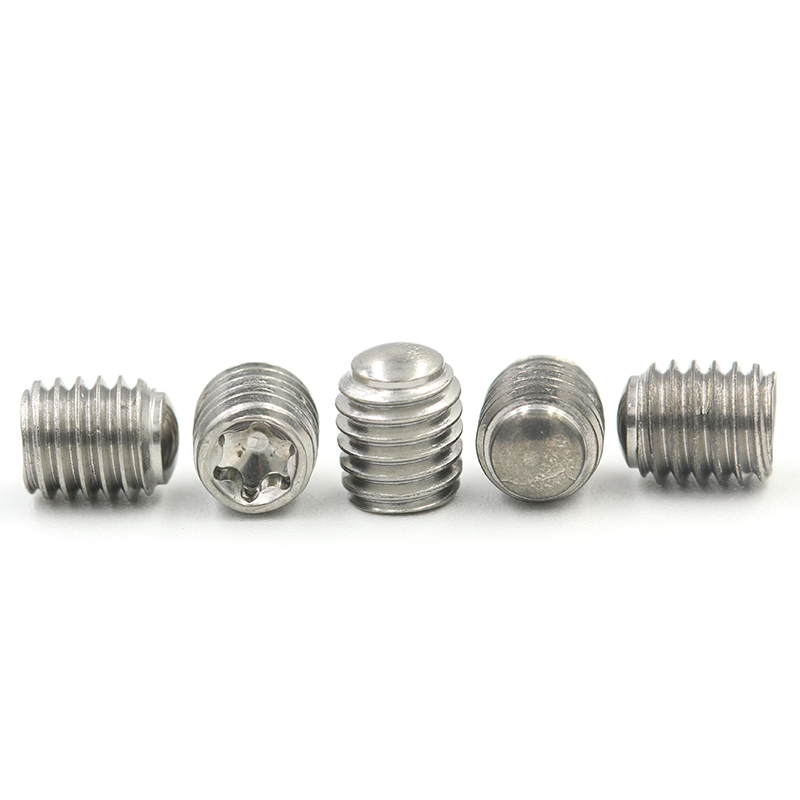
Cup point set screw
• Concave tip profile generates radial micro-indentations, creating anti-rotation interference fit.
• Optimized for dynamic loading applications through enhanced frictional retention.
• Produces characteristic circumferential witness marks upon installation.
• Hemispherical end geometry with negative curvature profile.
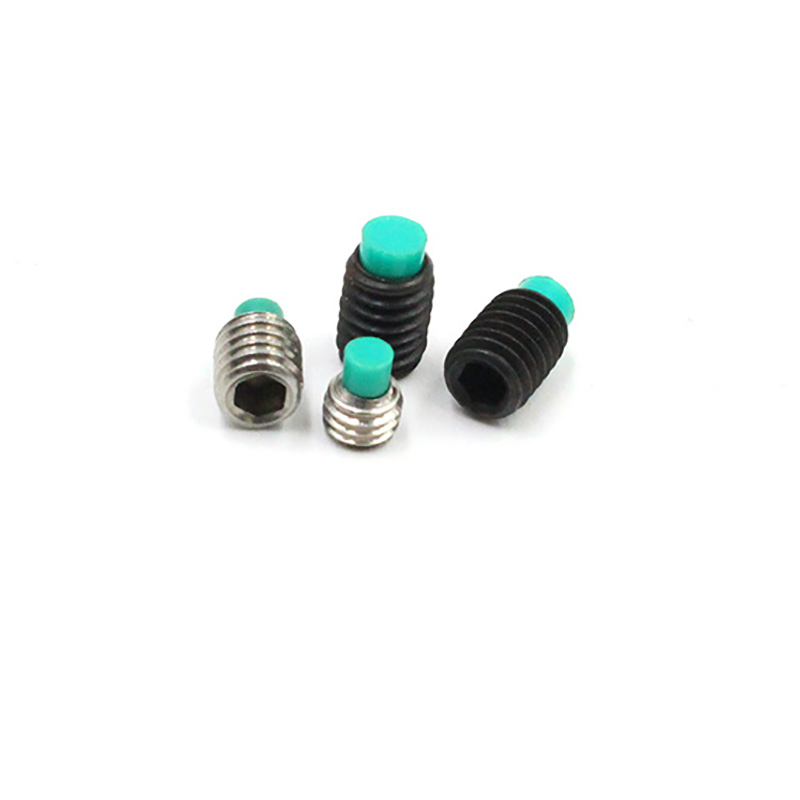
Nylon point set screw set screw
• Elastomeric tip conforms to irregular surface topographies
• Viscoelastic deformation enables full surface contour adaptation
• Provides mar-free high-retention fastening solutions
• Effective on non-prismatic shafts including eccentric or oblique geometries
1. Mechanical transmission systems
Fix the position of gears, pulleys and shafts.
Alignment and locking of couplings.
2. Automotive industry
Axial fixation of steering wheels and gearbox components.
3. Electronic equipment
Positioning of optical instrument lenses after adjustment.
4. Medical equipment
Temporary locking of adjustable brackets.
1. Requirements Definition
Provide material specifications, dimensional tolerances, thread parameters, and drive type to ensure application compatibility.
2. Engineering Coordination
Our technical team will conduct design verification and propose optimization solutions through direct consultation.
3. Manufacturing Execution
Production commences immediately following final specification approval and purchase order confirmation.
4. Logistics Management
Your order receives priority handling with our guaranteed delivery program to meet your project schedule requirements
1. Q: Why do set screws loosen easily?
A: Causes: vibration, material creep, or insufficient installation torque.
Solution: Use thread glue or matching lock washers.
2. Q: How to choose the end type?
A: Cone end: high hardness shaft (steel/titanium alloy).
Flat end: soft materials such as aluminum/plastic.
Cup end: general balancing scenario.
3. Q: Is it necessary to control the torque during installation?
A: Yes. Over-tightening may cause stripping or component deformation. It is recommended to use a torque wrench and refer to the manufacturer's manual.
4. Q: Can it be reused?
A: If the thread is not damaged and the end is not worn, it can be reused, but the locking performance needs to be checked.
5. Q: What is the difference between set screws and ordinary screws?
A: Set screws have no head and rely on end pressure to fix; ordinary screws connect components through the clamping force of the head and thread.





